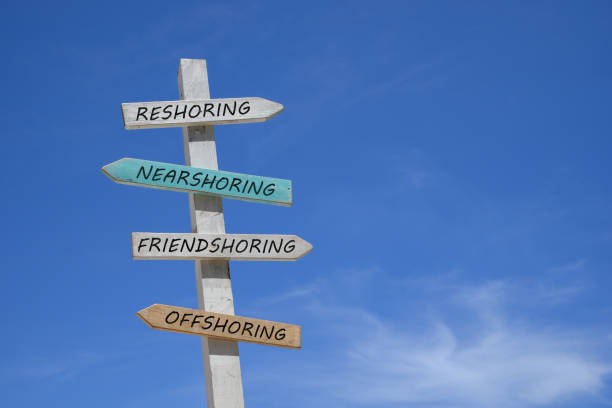Soulful Singlehood: Redefining Solo Living in the Age of Connection
In a world pulsing with digital connectivity, a quiet revolution is taking place in living rooms, cafes, and urban apartments across the globe. More individuals are embracing soulful singlehood, a lifestyle that merges independence with intentional connection. This shift challenges traditional notions of happiness and success, redefining what it means to live a fulfilling life outside the confines of conventional relationships. Read below to explore how this growing movement is reshaping society's fabric and personal aspirations.

The Historical Context of Singlehood
Singlehood has undergone a dramatic transformation throughout history. In many ancient societies, being unmarried past a certain age was often viewed as a failure or burden. The Industrial Revolution brought about significant changes, as urbanization and increased economic opportunities allowed for more independent living. However, it wasn’t until the latter half of the 20th century that remaining single became a more acceptable life choice.
The women’s liberation movement of the 1960s and 1970s played a crucial role in challenging the notion that a woman’s worth was tied to her marital status. As more women entered the workforce and gained financial independence, the pressure to marry decreased. Simultaneously, the sexual revolution and changing societal norms around cohabitation and divorce further expanded the concept of singlehood.
In recent decades, demographic trends have shown a steady increase in single-person households across many developed nations. This shift is attributed to various factors, including delayed marriage, increased life expectancy, and a growing emphasis on personal fulfillment over traditional family structures.
The Rise of Intentional Singlehood
Today’s soulful singles are not simply waiting for a partner or lamenting their solo status. Instead, they are actively choosing and embracing singlehood as a valid and fulfilling lifestyle. This intentional approach to being single is characterized by self-reflection, personal growth, and a commitment to building a life that aligns with one’s values and aspirations.
Research has shown that individuals who embrace singlehood often report higher levels of self-esteem and personal growth compared to those who view being single negatively. These intentional singles tend to have strong social networks, diverse interests, and a sense of purpose that extends beyond romantic relationships.
The concept of self-partnering, popularized by celebrities and thought leaders, encapsulates this shift towards viewing oneself as a complete and sufficient entity. It emphasizes the importance of self-love, personal development, and finding contentment within oneself rather than seeking it externally.
Redefining Success and Happiness
As soulful singlehood gains traction, it’s challenging long-held beliefs about what constitutes a successful and happy life. Traditional markers of adulthood, such as marriage and parenthood, are being reevaluated in light of diverse life paths and personal definitions of fulfillment.
Studies have shown that single individuals often have richer social lives and stronger connections with friends, family, and community compared to their married counterparts. This challenges the stereotype of the lonely single person and highlights the potential for deep, meaningful relationships outside of romantic partnerships.
Furthermore, the focus on personal growth and self-actualization inherent in soulful singlehood aligns with modern psychological theories of well-being. Concepts like self-determination theory emphasize the importance of autonomy, competence, and relatedness in achieving psychological health and happiness – all of which can be cultivated in a single lifestyle.
The Impact on Society and Culture
The growing acceptance and prevalence of soulful singlehood are having far-reaching effects on society and culture. Urban planning and housing markets are adapting to accommodate the increasing number of single-person households. This has led to innovations in compact living spaces, co-living arrangements, and community-focused urban design.
Consumer markets are also shifting to cater to the needs and preferences of single individuals. From solo travel packages to dining experiences designed for one, businesses are recognizing the economic power of this demographic.
In the realm of media and entertainment, there’s a noticeable increase in portrayals of single characters leading fulfilling lives, challenging the traditional narrative that happiness is only achievable through romantic partnership. This representation helps normalize singlehood and provides diverse models of what a satisfying life can look like.
Challenges and Criticisms
Despite its growing acceptance, soulful singlehood is not without its challenges and critics. Some argue that it promotes selfishness and contributes to societal fragmentation. There are concerns about the long-term implications for social structures, particularly in terms of care for the elderly and population demographics.
Additionally, singles often face discrimination in various aspects of life, from housing to workplace policies. The term singlism has been coined to describe the stereotyping, stigmatization, and discrimination against single people.
Critics also point out that the emphasis on self-sufficiency and independence may lead to isolation and loneliness, particularly as individuals age. Balancing autonomy with meaningful connection remains a key challenge for those embracing soulful singlehood.
The Future of Relationships and Community
As soulful singlehood reshapes individual lifestyles, it’s also prompting a reevaluation of how we form and maintain relationships and communities. There’s a growing recognition of the importance of chosen families and intentional communities that provide support and connection outside of traditional family structures.
Digital platforms and social media are playing a crucial role in facilitating connections among like-minded individuals, allowing singles to build global networks of friends and supporters. Virtual communities and online forums provide spaces for singles to share experiences, offer support, and challenge societal norms around relationships and lifestyle choices.
Looking ahead, the rise of soulful singlehood may lead to more fluid and diverse forms of relationships and living arrangements. From platonic life partnerships to communal living setups, individuals are exploring new ways to balance independence with human connection.
As society continues to evolve, the concept of soulful singlehood offers a compelling alternative to traditional life paths. It challenges us to reconsider our assumptions about happiness, success, and fulfillment, encouraging a more inclusive and diverse understanding of what it means to live a good life. Whether embraced as a lifelong choice or a temporary phase, soulful singlehood is undoubtedly leaving its mark on the social fabric of our time, paving the way for more authentic and individualized approaches to living and loving.






